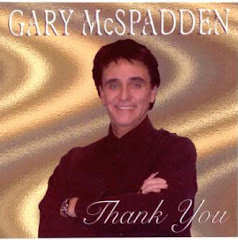On the rude arch that spanned the flood
In the April breeze their flag unfurled
Here the embattled farmer stood
And fired the shot heard round the world
-- Ralph Waldo Emerson
Did Scott brown win because of a pick-up truck?
Did Scott Brown win because of anti-Obama sentiment?
Is the Scott Brown win a referendum Obama-care?
Mr. Brown came to town in a pick-up truck and President Obama chose to attack the truck and the kind of people who drive and ride in pick-up trucks.
Mr. Brown will drive his truck to Washington.
Mr. Obama flew home with his tail between his legs.
Why DID Scott Brown Win In Massachusetts?
The question is being spun in so many directions that pundits must think the answer lies in a cotton candy maker. If you stayed up election night and surfed the plethora of experts and political forecasters, the responses ranged from a fluke, to a poorly run campaign, to divine intervention.
The truth is so obvious that it was largely ignored. Scott Brown won because, at the end of the counting, he had more votes. Though that sounds simplistic, take a step back and examine the facts.
Brown won in a state in which Democrats outnumber Republicans by 3.5 to 1, but independents account for a huge percentage of registered voters. in a state where the Democrats win by putting their names on a ballot, the unthinkable happened. The people failed to follow their script and the Democrats never considered that possibility.
Much of the democratic script involved sarcasm, arrogance and anger, coupled with attacks against everything from the Tea Party parties, to Rush Limbeau. Scott Brown's pick-up truck figured often in responses, as if the man's choice of wheels was shallow, disingenuous and unfair to the liberal challenger.
The degree of anger was no surprise but the depth of antipathy against former President Bush was a little out of place. To hear the pundits on MSNBC, one would believe that the democrat lost in Massachusetts because people are VERY mad at George Bush. That is an answer that will not resonate with voters, who don't like being boxed and packaged by liberals seeking a politically correct response, instead of the truth.
Scott Brown won for a long list of reasons, not the least of which is the poor campaign run by the Democratic nominee and the tidal wave of negative ads run by the campaign. People tuned out the negative campaign, almost before it began and that left them free to listen for a message coming from the challengers. Coakley failed to provide more than a dusting of commentary, sprinkled with liberal talking points, choosing to pretend Scott Brown and anyone voting with him were slightly stupid and sadly gullible.
Her arrogance and elitism turned off voters who waited in vain for her to speak out about issues and conditions that require hard work and a thoughtful approach. Her refusal to debate except on ridiculous terms, then failing to give strong performance in their debate, caused many to give up and start to listen to the candidate that actually spoke to people, instead of pretending to be oh so, above them all.
It is true that Massachusetts should have been a cake walk for Martha Coakley but the cook forgot to check the temperature of the oven and the cake burned.
There is a lot of unfocused anger in the liberal media today but refusing to examine the truth, opting to fix blame instead of the problem, means the party will miss the teachable moment, here.
When Barack Obama jetted into Massachusetts to save the day, he forgot that preaching to the choir would not necessarily communicate through to the congregation. His message was stilted, scripted, fake and arrogant. More Massachusetts voters polled in Scott Brown's favor after Obama's appearance, than before. The slide was noticeable - not slight and the party aggressively ignored what that meant, as they continue to ignore what it means going forward.
When President Obama insisted former President Clinton temporarily abandon the mercy mission in Haiti to fly him and his entourage to Massachusetts for a political rally, he failed to connect to real America.
Real America understands what Mr. Obama can't begin to fathom. The devastation in Haiti far outweighed the election in Massachusetts.
I have always known that kitchen table company is so much better than dining room guests. Real America happens around kitchen tables, not elegant dinners and private jets.
If you can't connect to real Americans at their kitchen table, you can't connect. The President failed to connect and did so boldly, loudly and with as much arrogance as possible. Americans in Massachusetts heard him and responded just as loudly. The difference is that Mr. Obama was not and is not listening. The beat of his own agenda, ego and elitism is making too much noise.
When Mr. Obama attacked Scott Brown for driving a pick up truck, he attacked what makes America American.
I drove a pick up for decades and loved it. I hope to drive one again. Mr. Obama and his machine can't get that and that's why Scott Brown won last night.
Change Is Hard
4 days ago







